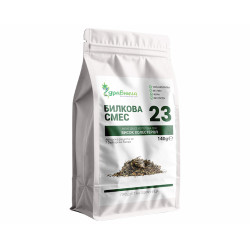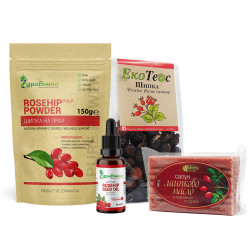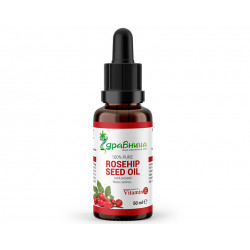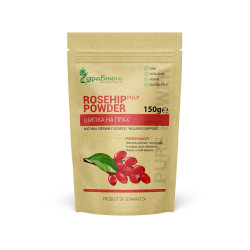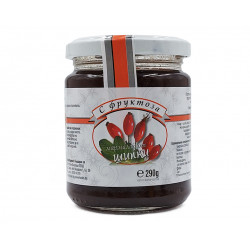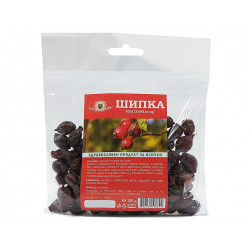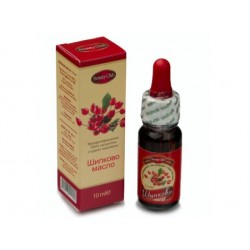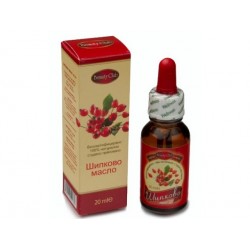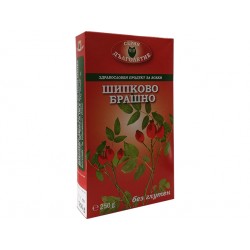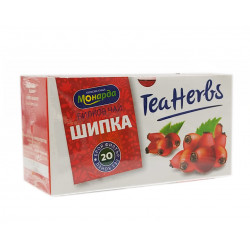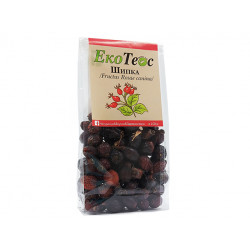In Bulgarian folk medicine the rosehip is applied very widely. Old herbalists call a rosehip - the "queen of herbs". The rosehip is used as a means of strengthening the body's defense and enhancing working capacity, especially in late autumn, winter and early spring.
The rosehip is used to strengthen the heart and the bloodstream, for gastrointestinal, cold and bronchial diseases. It acts especially beneficial to the hematopoietic organs in anemia, liver function and lowers blood sugar levels. Rosehip improves the lifestyle after severe illness, activates the immune system and strengthens the circulatory system. Applies to stones and sand in the kidneys and bladder. It is effective in treating local or general infections - pertussis, scarlet fever, diphtheria, pneumonia, according to Bulgarian specialist Prof. Pencho Dalev.
Bulgarian folk medicine offers the following recipe for preparation of strengthening and healing rosehip wine
To 1 kg of fresh rosehip fruits or 500 g of dried rosehip, add 500 g of sugar and pour 4 liters of water. Allow to stay for 20 days, stir each day. It is drained and the liquid is drunk instead of water. Squeezed fruits are re-used by adding the same amount of sugar. To the rosehip wine can be added the juice of 1 lemon or juice of berries - blueberries, strawberries, raspberries.
According to phytotherapy, rosehip tea is prepared as:
1 tablespoon chopped rosehip boil for 10 minutes with 300 ml of water. Precipitated potion is drunk on a coffee cup before eating 3 times a day.
Swedish Rosehip Soup:
Nyponsoppa Rosehip Soup is a popular delicacy in Sweden. It is served as a dessert with milk, cream or ice cream. Can be served with biscuits. Soup is usually made from dried rosehips, but it can also be fresh.
250 g dry rosehips or 500 g freshly boiled in 2 l of water until tender. Then mix with a mixer. The mixture is sifted through a sieve less often, boiled and add 50 g of potato starch (or potato flour) diluted in cold water. Serve chilled with milk or garnished with cream or ice cream.




